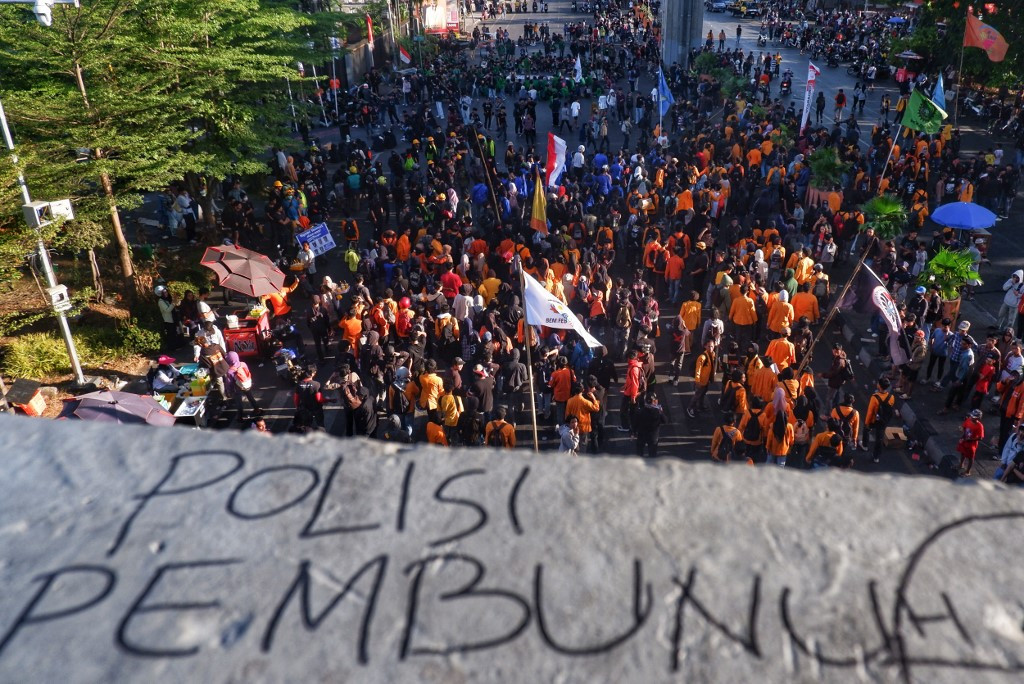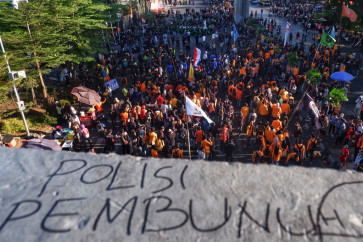Popular Reads
Top Results
Can't find what you're looking for?
View all search resultsPopular Reads
Top Results
Can't find what you're looking for?
View all search resultsThe new KUHAP casts a long shadow over Indonesian justice
The new KUHAP grants the police more powers at a time when the public is demanding reform of the police, stemming from widespread reports of abuse, criminalization, torture, case fabrication and corruption.
Change text size
Gift Premium Articles
to Anyone
T
he recently passed amendment of Criminal Law Procedure Code (KUHAP), though a historic undertaking, stands as a testament to the state’s failure to produce regulations that protect the rights of citizens facing the law. Consequently, President Prabowo Subianto must urgently reconsider its nationwide enforcement, currently scheduled for Jan. 2 of next year.
The House of Representatives’ endorsement of the revised KUHAP reveals a troubling narrative of manipulation regarding what the government, particularly the Law Ministry, and lawmakers have claimed was "meaningful participation" from civil society. This portrayal is misleading, suggesting that controversial articles in the new code were proposed by the very civil society groups that oppose them.
These organizations, including the Indonesian Legal Aid Foundation (YLBHI), the Legal Aid Institute for the People (LBHM) and the Alliance of Independent Journalists (AJI), are united under the Civil Society Coalition for the Criminal Procedure Code Reform. They vehemently dispute the government's claims.
The coalition disputes the attribution of several provisions, specifically Article 235 (1)(g), which introduces “judicial observations” as admissible evidence, and Article 221, which allows unsworn questioning of persons with mental or intellectual disabilities.
Furthermore, the newly enacted KUHAP is laden with vague provisions and "backdoor" articles designed to broaden the authority of law enforcement while granting impunity.
A prime example is Article 98, which stipulates that the arrest of judges suspected of a crime requires authorization from the Supreme Court. This provision clearly contradicts the principle that no one is above the law and violates Article 27 (1) of the Constitution, which guarantees equality before the law.
The revised code also empowers law enforcement to conduct "undercover buy" and "controlled delivery" operations [Article 16 (1) (f) and (g)]. Previously, these powers were restricted to special investigations, specifically narcotics cases. The new KUHAP redefines this authority as a method of preliminary investigation.



















